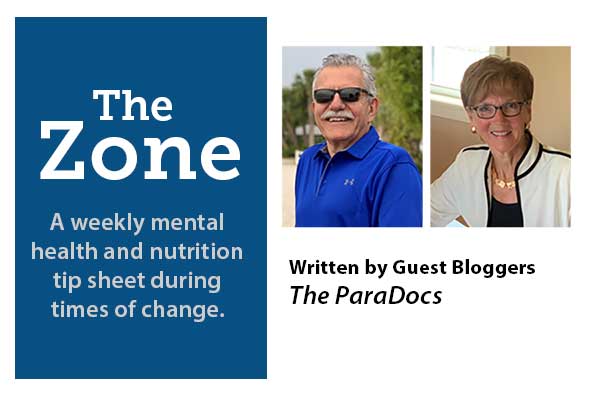How can we be sure that our decision to change is smart?
In Volume 31 of this guest series, psychotherapist, Dr. Francis L. Battisti, and nutritionist, Dr. Helen Battisti, teach us how planning transitions to action following the Risk-Benefits analysis.
For over 10 years, they have worked closely with us on aging concerns and have presented many webinars and in-person workshops. Their newsletter, The Zone, is a weekly mental health and nutrition tip sheet during times of change.
As we continue our exploration of the Stages of Change, in this volume we want to take a deeper look at the transition from the Planning Stage to the Action Stage. We have reached this point of transition once we have realized that a change in our lives is necessary and/or desirable and we are now gathering pertinent information and assessing it to assist us with the plan for action.
The Risk-Reward Analysis tool that we mentioned last week is as follows:
Suggested decision: Should I begin an exercise program?
Advantages | Disadvantages | |
|---|---|---|
No Change | I don’t have to change anything. I don’t have to get up earlier. I don’t have to exercise after work. I can sleep later in the morning. | I continue to feel tired. |
Change | I will feel better. | I have to change my schedule. |
This tool allows for a pictorial presentation of the advantages and disadvantages of the intended action. The items in the “advantages of no change” box are the obstacles that will interfere with our desired change. For the desired change to be intentional, these obstacles need to be in the forefront of our planning.
Additionally, for the desired change to be successful it needs to fit with our personal meaning and purpose of life. Our meaning of life is how we define ourselves, our intentions and our purpose being the discipline to accomplish our meaning.
Armed with this information and insight we may want to finalize our plan to ensure that it is S-Specific, M-Measurable, A-Attainable, R-Relevant and T-Time-Based (SMART).
Key Takeaways
- Change is not easy.
- Change requires intentionality.
- S.M.A.R.T. plans create successful plans.
Best Practices
- Use the Risk-Reward Analysis.
- Take the necessary time needed.
- Clarify personal purpose and meaning of life.
Things to Limit
- Over emphasizing feelings of defeat.
- Negative Thinking
- Underestimating barriers.
In summary, now may be the time to change practices, actions or thinking that do not add to our personal sense of engagement and effectiveness. By using the Stages of Change model as a reference point for decision-making, we expand the possibility of being successful and living a more resilient life.
Quote of the Week
“Always make decisions that prioritize your inner peace.”
-Izey Victoria Odiase

